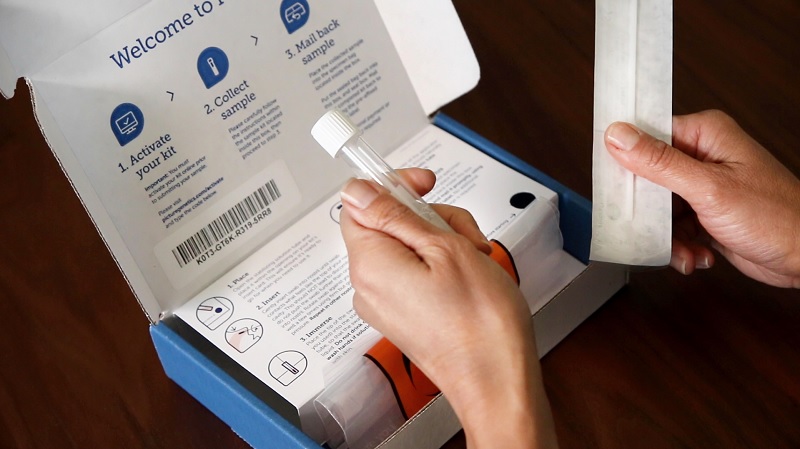Community
Baker-Polito Administration announces weekly at-home tests for students and staff enrolled in state’s testing programs

BOSTON – The Department of Elementary and Secondary Education and the Department of Public Health announced today updated school COVID-19 testing options, including providing participating teachers and staff with at-home rapid tests weekly, to optimize in-person learning. The two departments also released updated data on the pooled testing and Test and Stay programs.
Beginning this week, schools will be able to sign up to receive at-home rapid antigen tests for weekly use by all participating staff and students. Schools exercising this option will discontinue contact tracing and Test and Stay. This will enable school health staff to spend more time and resources identifying symptomatic individuals and focusing on other aspects of COVID-19 management. Schools must continue to participate in symptomatic and/or pooled testing in order to take part in the new at-home test program.
Other New England states, including Connecticut and Vermont, have recently transitioned from individualized contact tracing to the use of at-home tests and focusing school health efforts on symptomatic testing. This new option will give Massachusetts school districts more flexibility and more resources in COVID-19 testing that have the most immediate impact to keep schools open.
Schools will be able to start opting-in to the program this week for staff and will receive tests during the week of January 24. Schools will receive tests for students whose families opt-in during the week of January 31.
The at-home tests will be shipped directly to school districts for distribution and are packaged in kits that contain two tests. Students and staff who participate will receive one kit every two weeks to test themselves. Families will need to inform their school if they want at-home rapid antigen tests sent home with students. If an individual tests positive at home, they should inform their school of the result. Schools will report positive cases to DESE as part of the weekly COVID-19 reporting already in place.
The tests for this program will come from the supply of 26 million at-home rapid antigen tests the Baker-Polito Administration announced last week it ordered from iHealth and that will be delivered over the next three months. K-12 schools and child care centers will be prioritized for those tests.
Data collected over the past few months from the Test and Stay program is compelling around what it reveals about school safety. Students and staff individually identified as asymptomatic close contacts and repeatedly tested in school through Test and Stay test negative more than 90 percent of the time. As of January 9, 503,312 Test and Stay tests had been conducted; 496,440 of them were negative (almost 99 percent).
The data from K-12 pooled testing reveal that individual positivity rates are significantly lower than statewide positivity rates. Last week, despite elevated positivity rates in K-12 schools, the estimated individual positivity rate was still roughly 1/5 of the statewide positivity rate.
“Massachusetts’ first and most comprehensive in the nation school testing program has reinforced the fact that our schools remain safe places for students, teachers and faculty,” said Health and Human Services Secretary Marylou Sudders. “The Test and Stay program data revealed extremely low rates of secondary transmission, which shows that close contacts very rarely test positive.”
“Through experience with our robust K-12 testing programs, we have been able to learn that in-school transmission is extremely rare, and we understand from medical professionals and school nurses that now is time to provide additional options to districts. This increased flexibility will give communities the ability to do what is best for their students and staff and keep schools open for learning,” said Education Secretary James Peyser.
“As always, we are committed to using available data to inform our recommendations to schools and districts. We have heard from school nurses and superintendents that we need to adapt our strategy to allow them to focus directly on symptomatic individuals rather than identifying asymptomatic close contacts,” said Elementary and Secondary Education Commissioner Jeffrey C. Riley.







You must be logged in to post a comment Login